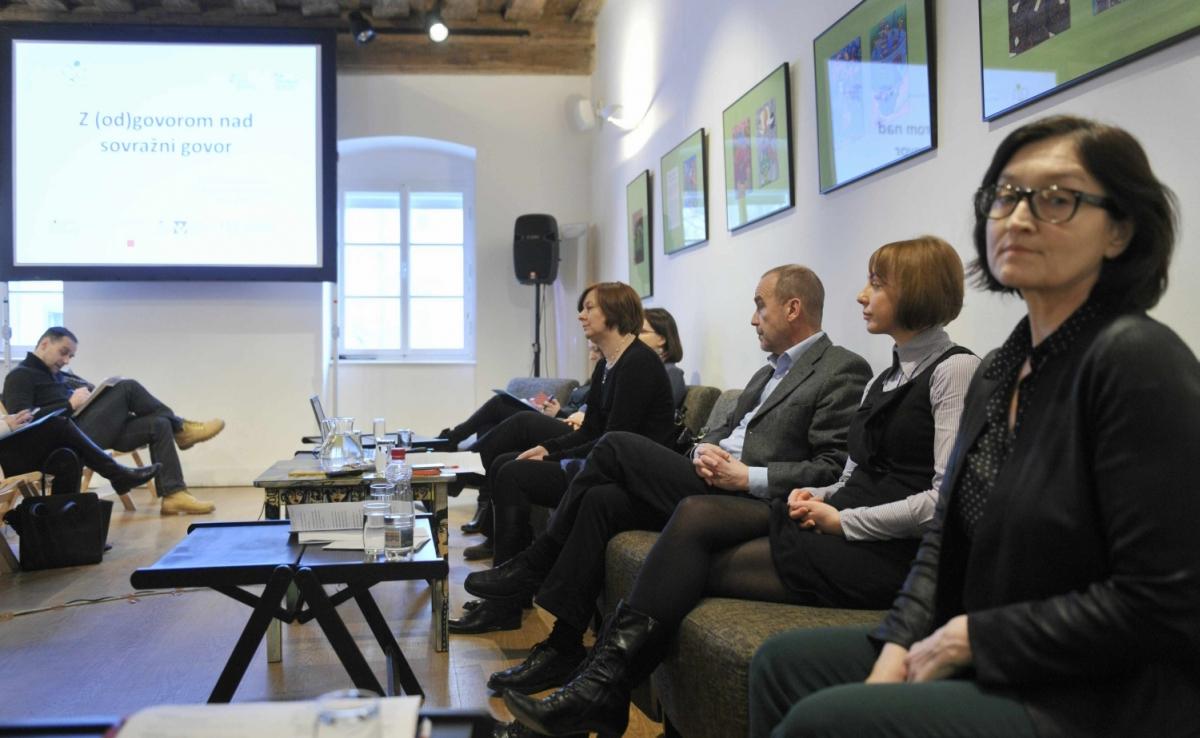
The Peace Institute considers that there is no comprehensive mechanism in Slovenia for systematic and sustainable response to this troublesome social phenomena. Therefore they had initiated the project Countering hate speech in Slovenia (Z (od)govorom nad sovražni govor), in cooperation with the Faculty of Social Sciences, our MMC portal, and the Ombudsman. The financial support is given by the Norvegian financial mechanism, and the EGP financial mechanism. The purpose of the project was presented at the round table in Ljubljana.
The core of the project consists of the board conceived as an independent body, responding to this public phenomenon, under the head of the project Veronika Bajt. The body will establish standards of public communication, and raise public awareness.
It is of absolutely civilian social nature, and will be influential through response intended to deprive hate speech of legitimacy. "By not responding we are allowing it, along with its inclusion into public debate," she explained.
According to the Peace Institute, hate speech is increasingly becoming a part of public communication, while judicial epilogues are very rare.
Rovšek: We are addressing the grey zone
That is the main reason the institute of ombudsman has joined the initiative at its very start, explains the deputy Jernej Rovšek. The initiatives for discussing hate speech addressed to the ombudsman are becoming more and more frequent – the largest number (370) was filed in 2012 – and they affected both individuals and groups. These initiatives place the ombudsmen in a rather unpleasant position, as the ombudsman is not entitled to judge whether a criminal act had been committed. »The only formal definition is given in the penal code, but the number of convictions per year can be counted on the fingers of one hand," he added.
This creates a grey zone between legislation and acceptable speech, and the project will address that field. "The response to such occurrences was missing, and as we have no possibility to react, or define an act as criminal, we were subjected to criticism, either politically or religiously motivated," Romšek concluded.

































































